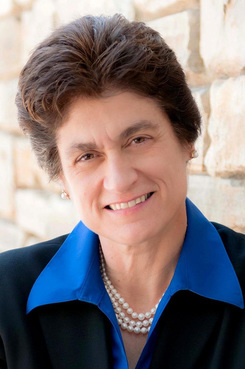Retired Judges Grumble at Assignment Program Reforms, as Audit Raises Questions
State Auditor Elaine Howle found that in 2016 the judiciary spent nearly $7 million to send retired judges to five courts whose workloads suggested they should have had enough judges on hand.
April 10, 2019 at 01:18 PM
5 minute read
 Elaine Howle, California State Auditor
Elaine Howle, California State AuditorUpdated on May 10
California's assigned judges program, a constitutionally provided system that uses retired jurists to cover judicial absences, is under mounting scrutiny amid allegations of cost overruns, questionable practices and new rules that some judges say amount to age discrimination.
A report released Tuesday by state Auditor Elaine Howle found that in 2016 the judiciary spent nearly $7 million to send retired judges, assigned by the chief justice, to five courts that workload data suggest should have had enough judges on the bench to handle absences due to illnesses, training sessions or case disqualifications.
Howle's report concluded that the assigned judges program, with a $27 million annual budget in 2016, lacked any procedures that would ensure courts requesting judicial temps had tried to find available in-house replacements or from other trial courts.
“Further, we found that the [program] had no mechanism for program staff to review whether the courts requesting additional resources already had more judicial positions than its workload justifies,” Howle's audit said. “In fact, program staff consistently reported that they did not even question the courts' requests but simply attempted to fill them as best they could.”
During Howle's review of a whistleblower complaint against the assigned judges program, investigators learned that judicial administrators were already looking into similar problems with the assignment system, including a projected cost overrun in 2018, the audit said.
Judiciary officials last spring instituted new rules for the program. Retired judges are now restricted to 120 days of assigned work a year and a retroactive, lifetime cap of 1,320 total days in the program. Judges must wait 90 days after their retirement to join the program, and administrators must consider a court's overall judicial staffing when analyzing a temp request. The rules also give each court a budgeted number of days they can use assigned judges.
Assigned judges are paid $764 a day plus whatever pension they already receive.
Read: Investigations of Improper Activities by State Agencies and Employees
“The state auditor's review reinforces our own earlier review of the assigned judges program, which resulted in the announcement of various program changes,” Martin Hoshino, the Judicial Council's administrative director, said in an email Tuesday to The Recorder.
Hoshino said branch executives agree with the auditor's recommendations, “particularly the recommendation to review the trial courts' compliance with the recent program changes. The presiding judges in each of our state's 58 superior courts are key partners in the program and we will be following up with them, as the auditor recommends.”
The auditor said the changes would help the program run “in a more efficient manner.”
But not everyone is happy about the new rules. Some retired judges don't like the lifetime service cap or the retroactive nature of the new rules.
“It's a violation of law,” said Quentin Kopp, a retired San Mateo County Superior Court judge. “It discriminates on the basis of age in its effect.”
Kopp, who once served in the assigned judges program, said he represents a handful of retired jurists who allege the new rules unfairly block them from work because of their years of service. He said the retirees have filed a complaint with the state Department of Fair Employment and Housing, a potential precursor to a lawsuit.
The new rules allow the chief justice to grant exemptions for situations such as a judge's unexpected absence or a rural court location where few qualified jurists live.
 Tani Cantil-Sakauye, chief justice of California. Credit: Diego M. Radzinschi / ALM
Tani Cantil-Sakauye, chief justice of California. Credit: Diego M. Radzinschi / ALMIn a March 28 letter to Gary Nadler, a Sonoma County Superior Court judge who chairs a Judicial Council committee of presiding judges, Chief Justice Tani Cantil-Sakauye wrote that over a recent three-month period courts submitted 121 rules-exemption requests for assigned judges. Of those requests, staff recommended, and Cantil-Sakauye said she approved, 88—most of them for retired jurists who have already served more than 1,320 days.
Cantil-Sakauye wrote that staffers are working on “a more defined process” for rule waiver requests.
Their use varies widely from court to court. The 10 courts with the biggest demand for temporary judges include the state's largest trial courts, according to data provided by the Judicial Council. Los Angeles County Superior Court, for instance, used 23,777 days of service from assigned judges between 2013 and 2018. But also on the top-10 list was rural Tulare County Superior Court with 5,012 days.
Judicial Council records show that 20 retired judges were each paid at least $1.2 million for various tenures of work in the assigned program between 1999 and 2018. The top-earning retiree received $1.9 million over that time span. Those payments did not include pension disbursements or reimbursements for travel costs.
Read more:
Judiciary's Demand for More Money and Judges Greets Newsom
Newsom Picks Martin Jenkins for Judicial Appointments Secretary
Judicial Discipline Records Face First-Ever Audit After Deal Ends Dustup
This post was updated to correct the daily compensation for assigned judges. The amount is $764.
This content has been archived. It is available through our partners, LexisNexis® and Bloomberg Law.
To view this content, please continue to their sites.
Not a Lexis Subscriber?
Subscribe Now
Not a Bloomberg Law Subscriber?
Subscribe Now
NOT FOR REPRINT
© 2025 ALM Global, LLC, All Rights Reserved. Request academic re-use from www.copyright.com. All other uses, submit a request to [email protected]. For more information visit Asset & Logo Licensing.
You Might Like
View All
Apple Files Appeal to DC Circuit Aiming to Intervene in Google Search Monopoly Case
3 minute read

Hawaii wildfire victims spared from testifying after last-minute deal over $4B settlement
4 minute read
State Appeals Court Revives BraunHagey Lawsuit Alleging $4.2M Unlawful Wire to China
3 minute readTrending Stories
- 1Uber Files RICO Suit Against Plaintiff-Side Firms Alleging Fraudulent Injury Claims
- 2The Law Firm Disrupted: Scrutinizing the Elephant More Than the Mouse
- 3Inherent Diminished Value Damages Unavailable to 3rd-Party Claimants, Court Says
- 4Pa. Defense Firm Sued by Client Over Ex-Eagles Player's $43.5M Med Mal Win
- 5Losses Mount at Morris Manning, but Departing Ex-Chair Stays Bullish About His Old Firm's Future
Who Got The Work
J. Brugh Lower of Gibbons has entered an appearance for industrial equipment supplier Devco Corporation in a pending trademark infringement lawsuit. The suit, accusing the defendant of selling knock-off Graco products, was filed Dec. 18 in New Jersey District Court by Rivkin Radler on behalf of Graco Inc. and Graco Minnesota. The case, assigned to U.S. District Judge Zahid N. Quraishi, is 3:24-cv-11294, Graco Inc. et al v. Devco Corporation.
Who Got The Work
Rebecca Maller-Stein and Kent A. Yalowitz of Arnold & Porter Kaye Scholer have entered their appearances for Hanaco Venture Capital and its executives, Lior Prosor and David Frankel, in a pending securities lawsuit. The action, filed on Dec. 24 in New York Southern District Court by Zell, Aron & Co. on behalf of Goldeneye Advisors, accuses the defendants of negligently and fraudulently managing the plaintiff's $1 million investment. The case, assigned to U.S. District Judge Vernon S. Broderick, is 1:24-cv-09918, Goldeneye Advisors, LLC v. Hanaco Venture Capital, Ltd. et al.
Who Got The Work
Attorneys from A&O Shearman has stepped in as defense counsel for Toronto-Dominion Bank and other defendants in a pending securities class action. The suit, filed Dec. 11 in New York Southern District Court by Bleichmar Fonti & Auld, accuses the defendants of concealing the bank's 'pervasive' deficiencies in regards to its compliance with the Bank Secrecy Act and the quality of its anti-money laundering controls. The case, assigned to U.S. District Judge Arun Subramanian, is 1:24-cv-09445, Gonzalez v. The Toronto-Dominion Bank et al.
Who Got The Work
Crown Castle International, a Pennsylvania company providing shared communications infrastructure, has turned to Luke D. Wolf of Gordon Rees Scully Mansukhani to fend off a pending breach-of-contract lawsuit. The court action, filed Nov. 25 in Michigan Eastern District Court by Hooper Hathaway PC on behalf of The Town Residences LLC, accuses Crown Castle of failing to transfer approximately $30,000 in utility payments from T-Mobile in breach of a roof-top lease and assignment agreement. The case, assigned to U.S. District Judge Susan K. Declercq, is 2:24-cv-13131, The Town Residences LLC v. T-Mobile US, Inc. et al.
Who Got The Work
Wilfred P. Coronato and Daniel M. Schwartz of McCarter & English have stepped in as defense counsel to Electrolux Home Products Inc. in a pending product liability lawsuit. The court action, filed Nov. 26 in New York Eastern District Court by Poulos Lopiccolo PC and Nagel Rice LLP on behalf of David Stern, alleges that the defendant's refrigerators’ drawers and shelving repeatedly break and fall apart within months after purchase. The case, assigned to U.S. District Judge Joan M. Azrack, is 2:24-cv-08204, Stern v. Electrolux Home Products, Inc.
Featured Firms
Law Offices of Gary Martin Hays & Associates, P.C.
(470) 294-1674
Law Offices of Mark E. Salomone
(857) 444-6468
Smith & Hassler
(713) 739-1250






